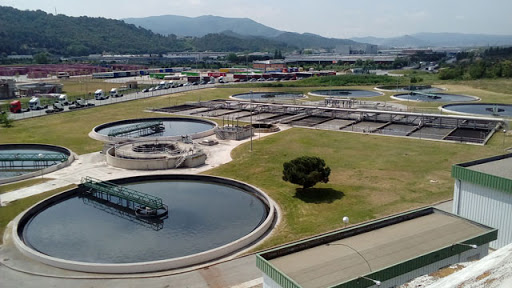Delving into the role of sanitation systems on the quality status of river systems in the Besòs basin
A study by the ICTA-UAB and the Observatori Rivus confirms that the implementation and improvement of sanitation systems have favoured the state of the quality of rivers in this basin in the past 20 years.

The implementation of the network of collectors and wastewater treatment plants (WWTPs) and advances in treatment processes have allowed the improvement of the ecological quality of the Besòs basin in the past 20 years, facilitating the expansion of key species, quality indicators and recovery.
This emerges from the study carried out by researcher Antoni Mas Ponce from the Institute of Environmental Sciences and Technology of the Universitat Autònoma de Barcelona (ICTA-UAB) within the framework of the RIVUS Observatory project, together with CREAF researchers and in collaboration with the Besòs Tordera Consortium and the RIVUS Foundation.
The study, published in the journal Environmental Processes, assesses the effects of the implementation of wastewater treatment plants on the status of ecological quality of the river systems of the Besòs basin between 2000 and 2018.
The rapid process of industrialization and urbanization that took place during the 1960s and 1970s led to a significant alteration in the quality of water and the flows of the Mediterranean river systems. The lack of treatment systems in most cities in Catalonia led to the uncontrolled discharge of wastewater into the environment, causing numerous episodes of pollution. Specifically, the Besòs basin was considered in this period to be one of the most polluted rivers in Europe due to strong anthropogenic pressures.
In 1995, the Catalan government approved the Sanitation Plan of Catalonia with the main objective of reducing and eliminating pollutants from most of the country’s river systems. This Plan, for which the Catalan Water Agency is responsible as the competent body in the water cycle and in sanitation in Catalonia, includes 527 WWTPs. In the Besòs basin, there are 26 treatment plants installed, 13 of them managed by the Besòs Tordera Consortium, which serves about 2 million inhabitants.
Researchers have analysed data related to the biological and hydromorphological quality of headwater areas and the middle and lower courses of the rivers of the Besòs basin, using communities of diatom algae, macroinvertebrates and riparian vegetation as bioindicators. The results obtained show a general improvement in water quality in the period studied.
In addition, the data referring to the levels of conductivity and ammonium concentration of effluents from 13 treatment plants in the Besòs basin over a period of 20 years were analysed. Generally, the variability of these physicochemical parameters directly affects the biodiversity that inhabits river systems, especially macroinvertebrates. In the period studied, the levels of these parameters show a clear downward trend, greatly reducing the polluting capacity of the wastewater treatment plants.
The assessment of the effect of the sanitation system improvement on the quality of the river systems has been carried out from the analysis of the interaction between the biological indicators of the river systems and these physicochemical parameters in the outflows of the WWTPs. "There is a lot of previous research that demonstrates the efficiency of treatment systems in relation to the quality status of rivers, but very little considering the bioindicators of the quality status of river systems, as this research proposes", says Antoni Mas Ponce, main author of the study.
The improvement in the quality of the rivers in recent decades is evident, but there is still a long way to go to achieve an optimal status of the river systems and address the challenges posed by global change, such as the expansion of invasive alien species or, especially, climate change", indicates Dr Sonia Sánchez Mateo, ICTA-UAB researcher, technician at the Rivus Foundation and coordinator of the Rivus Observatory, who recalls the importance of promoting medium and long-term monitoring programs.
The model proposed in this research can be a replicable and transversal tool in management plans of other Mediterranean hydrographic basins with availability of long and robust data series of quality status indicators.